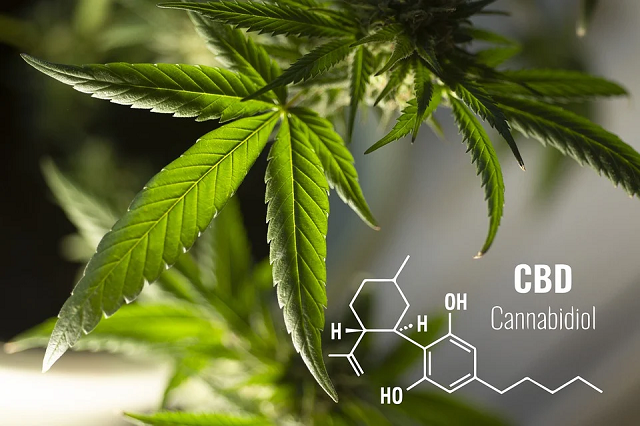CBD’s Future as an Active Ingredient in Therapeutic Medicine

By Contributing Author
For a while, CBD critics have limited the cannabinoid’s potential to just that of a wellness supplement. But CBD’s properties may provide health benefits that are worth incorporating into more legitimate forms of medicine, specifically as an active ingredient in therapeutic treatments. Even as research around cannabidiol (CBD) continues, pharmaceutical companies have already started integrating the cannabis-derived substance into their current line of products. As the legalization around CBD begins to relax, the cannabidiol industry could see complete its transformation into a multi-billion dollar industry.
The Properties of Cannabidiol
Though the public opinion around CBD is still divided, a lot of the research surrounding CBD and its effects have been almost unilaterally positive. Cannabidiol is one of the hundreds of chemical components of cannabis known as cannabinoids. These cannabinoids and their connection to marijuana have been the greatest barrier to CBD’s acceptance into mainstream retail and pharmaceutical markets. Besides the dubious origins of cannabis regulation, CBD’s connection to THC is what has caused the greatest cause for concern and subsequent testing.
Contrary to what the majority of the population may believe, THC and CBD have pretty distinct differences. Tetrahydrocannabinol, or THC, is largely credited as being the psychoactive component of cannabis and what provides its users with their reported ‘high’. Without much prior research, many pharmaceutical companies believed that cannabidiol might share some of these elements, but the recent evidence suggests the opposite.
After a thorough investigation back in 2018, the United Nations released a report detailing their findings with regards to CBD’s qualities as an addictive drug. The results were eye-opening. The researchers’ conclusions were that CBD did not demonstrate some of the effects that are typically seen with cannabinoids like THC. Similarly, under the scrutiny of a number of controlled and open-label trials, CBD was generally well tolerated by those who ingested the substance. In fact, their conclusion was that its safety profile was quite high. Something that is especially important when it comes to CBD’s adoption as an active ingredient in therapeutic drugs.
CBD’s Potential as Therapeutic Medicine
The recent evidence supporting CBD’s therapeutic benefits and high safety profile has cemented it as a potentially huge player in the pharmaceutical industry. The 2018 United Nations report highlighted how CBD – in addition to its ability to be well tolerated – was not associated with abuse potential. Up to this point, this has probably been the most significant discovery in terms of the FDA’s eventual acceptance of CBD as a safe product. In the report, this is largely attributed to CBD’s lack of cardiovascular or psychoactive effects, two qualities associated with becoming addictive.
The study used a double-blind placebo-controlled trial on a sample of healthy volunteers to evaluate the degree to which CBD’s effects would be abusable. As alluded to in the above sections, the results revealed CBD to be placebo-like under all measures. What does this mean? This means that it had essentially no effect on 1) the abuse potential of other substances, including isolates of itself, and 2) it did not produce abuse-related subjective effects that other cannabinoids did.
After all of this, it may be surprising that there aren’t more CBD-based drugs out on the market. But some of them are already far along in their trials, one of which has already entered the pharmaceutical industry and to great success.
CBD Has Entered the Pharmaceutical Industry
While cannabidiol still has a long way to go in terms of its adoption as a medically and publicly accepted therapeutic substance, it has already begun to make waves as the main component of an epilepsy drug. Coinciding with the release of the UN’s health report on CBD, the FDA approved the first drug to be composed of an active, cannabis-derived ingredient. This drug is called Epidiolex, and it is designed to treat rare and severe cases of epilepsy.
Though this is not your garden-variety full spectrum CBD isolate, Epidiolex is almost entirely composed of CBD extract. This drug has seen massive success with epileptic patients who are otherwise sensitive to stronger drugs. For instance, many children have seen great success with drugs, especially during its initial trial phase. One family, for instance, as the Epilepsy Foundation reported, found the drug almost revolutionary. Prior to the administration of this CBD-based drug, a young woman with Aicardi Syndrome was experiencing upwards of 50 seizures a day. Following the trial, that number went down to about 2 to 5 seizures a week.
Clearly, CBD’s potential as an active ingredient in pharmacology has not been fully explored. For investors looking to take advantage of a market with a low-entry point and high growth potential, CBD might be the market you have been looking for.



